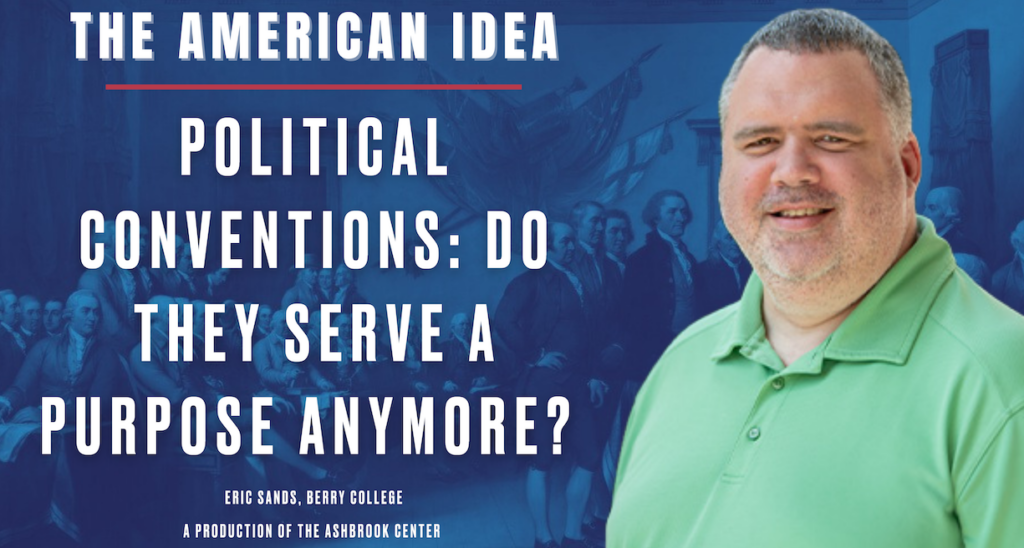Political Party Conventions: Do They Matter Anymore?
August 21, 2024

Listen and subscribe to the podcast
Join The American Idea’s Listener Email list – get news about upcoming episodes and a chance to offer questions for them, too!
Origins and Purpose
Political party conventions emerged in the United States as a way to democratize the presidential nomination process, which was previously controlled by Congressional caucuses. The first national party convention was held in 1832 by the Democrats. Early conventions were characterized by intense passion, wild crowds, and a high degree of uncertainty over the nominee. Delegates would spend days negotiating, wheeling and dealing, and securing support for their candidates.
19th Century Conventions
One of the most consequential conventions of the 19th century was the Republican convention of 1860, where Abraham Lincoln emerged as the nominee despite being relatively unknown nationally. Lincoln’s moderate stance on slavery appealed to voters and proved crucial in saving the Union during the Civil War.
Progressive Era Reforms
The Progressive Era brought about significant changes to party conventions. Progressives criticized conventions as corrupt and undemocratic, leading to the introduction of primary elections in the 1890s. By the 1910s, several states had adopted primaries, challenging the convention system.
The Decline of Conventions
The 1968 Democratic Convention, marred by protests and violence, marked the beginning of the decline of party conventions. The rise of primaries and the increasing power of party leaders in selecting candidates diminished the significance of conventions. Today, party conventions largely serve as opportunities for party unity and media coverage. They have become more tightly controlled by party leaders, with limited opportunities for delegates to influence the nomination. Conventions continue to be important for platform debates and the official endorsement of the nominee.
Forecast for the Future
The future of party conventions remains uncertain. Some argue that they have become obsolete in the age of primaries and social media. Others believe that conventions still serve a valuable purpose in bringing party members together and generating political excitement.

